Features
THE FALL OF DARAYA
From Roses to Evacuation
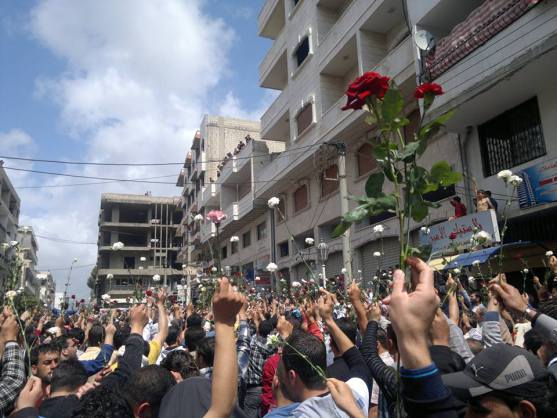
by Leila Al Shami
Four years following its liberation, the predominantly agricultural town of Daraya, strategically located near Syria's capital, has fallen to the regime. A deal was reached to evacuate the 4,000-8,000 civilians remaining from a pre-uprising population of 300,000. The local fighters who defended their town so courageously will go to Idlib and join the resistance there.
Daraya's residents know that they may never return to their homes. Photos circulated on social media showed residents gathered at the graves of loved ones to say goodbye. Fears abound of a plan to cleanse opposition strongholds permanently; and in previous evacuation deals, even those carried out under UN auspices, many were detained by the regime, never to be seen again.
CLIMATE CHANGE AND CREATIVE REVOLT
Fires in Canada, Drought in India Inspire Fight for Environmental Justice
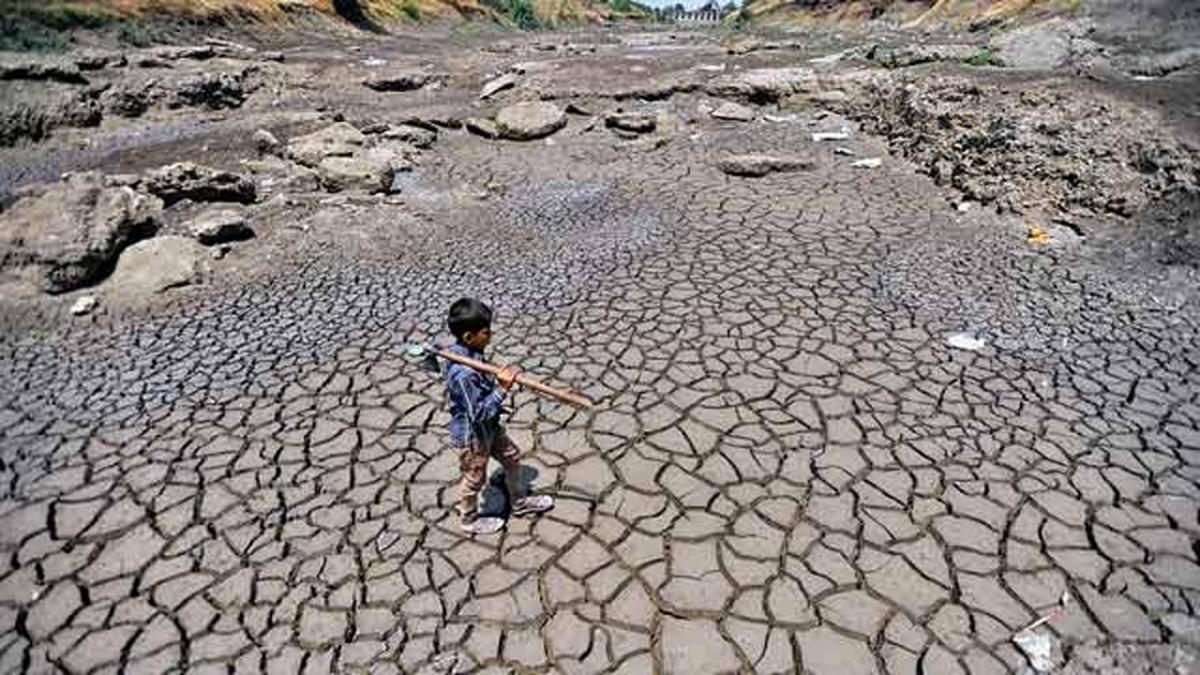
by Franklin Dmitryev, News & Letters
Throughout May, a wildfire raged in Alberta, Canada, spreading to Saskatchewan. On May 3 it swept through the city of Fort McMurray, forcing the evacuation of all 88,000 people, some of whom are still unable to return. At press time, it is still burning, having covered about 1.5 million acres. Most of that is forest, producing emissions of greenhouse gases equivalent to 100 million tons. That is just a rough estimate, but it compares to the yearly emissions of about 40 of the poorest countries, or six times what is emitted by 20 island nations at risk of losing much or all of their land to rising seas
The Fort McMurray area had been the permanent or temporary home for many workers in the Athabasca Tar Sands, where the world's biggest industrial operation extracts bitumen to produce heavy crude oil. Some of it is piped into the US to refineries such as the BP plant on the Indiana shore of Lake Michigan. Dozens of people were arrested in May protesting that plant's expansion to handle more tar sands oil. Some of that bitumen spilled near Battle Creek, Mich., in 2010 and may never be fully cleaned up, turning some of the neighbors into self-described "accidental activists." The extraction and refining processes are so energy-intensive that, combined with the vast size of the tar sands deposit, leading climatologist James Hansen called it "game over for the climate" if the tar sands get fully exploited.
PERU'S NEW GOVERNMENT WANTS MORE CHINA
by Nelly Luna Amancio, Diálogo Chino
Peru's new president, Pedro Pablo Kuczynski (known as PPK), intends to stimulate the country's economy by processing and refining minerals, in addition to simply exporting them. Since his victory in the runoff election on June 5, Kuczynski has declared the need for Peru to prioritize both mineral extraction and trade relations with China.
China is Peru's biggest investor. With this in mind, Kuczynski—who will replace the outgoing President, Ollanta Humala, at the end of July—described as "necessary" a trip to China ahead of the Asia-Pacific Economic Cooperation (APEC) forum in Lima in November, his first official visit overseas. "China is our number one trading partner and they are the ones who purchase our minerals," he said.
"We are an economy with enormous natural resources, but we have to industrialize and that is no easy task. So, we will have to work with those who buy significant amounts of our exports, which means, to a large extent, China," Kuczynski insisted during the Eleventh Business Summit of the Pacific Alliance in Lima in June.
GREEN PARTY, WHITE PRIVILEGE
by Michael I. Niman, The Public
This might be a great year for the Green Party, which some polls are predicting could score a record-shattering five percent or more of the popular vote in the upcoming presidential election. Hillary Clinton is a tool of Wall Street and corporate interests such as Wal Mart, on whose board she once served. And Donald Trump, of course, is a fascist. The Libertarians want to do away with environmental and labor protections and open the door further for corporate pillage. This leaves opportunity for a strong Green Party run with the comparatively benign Jill Stein, who wants to grab the crown off Bernie Sanders' head and hijack the movement his candidacy created.
The Green theme is generally the same as it was when I was an elector for Ralph Nader 16 years ago—vote "your hopes, not your fears," only now it's "vote your conscience." George W. Bush, however, despite arguments that he was "the worst president in history," and the reality that his foreign policy birthed endless wars and ISIS, never posed the level of threat that Trump presents. Trump is a bona fide fascist who assembled a following based on a cult of personality. Delegates at his Republican Convention, the whitest GOP soiree in over a century, regularly chanted for his political opponent to be jailed, presumably after his coronation. One campaign insider called for her execution.
DEFEAT PENDEJO-FASCISM!
Bernie is OK — but not 'or Bust'
by Bill Weinberg, The Villager
A few weeks ago, I wrote about a protest by members of New York's Peruvian immigrant community in Union Square, to oppose the candidacy of Keiko Fujimori in the South American country's presidential race—the daughter of imprisoned ex-dictator Alberto Fujimori, who intransigently defends her father's blood-drenched legacy. Peru's left mobilized for her defeat.
Keiko was opposed by a merely odious center-right technocrat and former cabinet minister, Pedro Pablo Kuczynski, or "PPK." Verónika Mendoza, the left-wing candidate who was bumped out of the race in the first round in April, urged her supporters to vote for pro-corporate conservative PPK, so as to keep openly fascistic Keiko out of office—and to be prepared to build a vigorous opposition from his first day on the job.
It was a very close vote, but it worked—PPK won by the proverbial hair in the June 5 run-off.
As if to drive home the point that PPK is merely a lesser enemy (but still very much an enemy), soon after his election he unveiled an economic program that calls for privatization of Peru's communal indigenous and peasant lands—and their sale to mining, oil and agribusiness interests. Land-grabs by corporate interests have already been a source of much rural unrest in Peru in recent years.
I hope the analogy is clear.
OAXACA TEACHERS MOVEMENT
Not Thwarted by State Terror
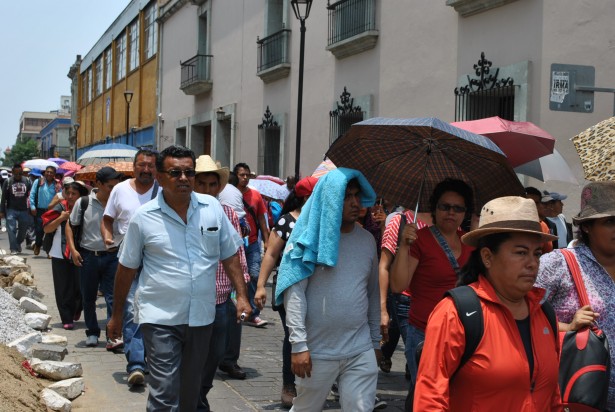
by Shirin Hess, Waging Nonviolence
On June 19, the southern Mexican state of Oaxaca was the scene of a senseless massacre. The bloody battle took place in the rural town of Nochixtlan and resulted in the death of at least nine civilians. "Right now, the federal police are withdrawing, going back to their vehicles," said a witness of the attack as he filmed the horrific scene. Bullets are heard smashing against metal traffic barriers on the roadside as the camera image shakes. Taking heavy breaths he calmly continued, "And as they retreat, they are shooting at us with firearms."
A week earlier, police crackdowns had begun in various regions of Oaxaca state. These acts of violence are occurring in light of current protests in Oaxaca, where—since May 15—the teachers’ movement has set up a peaceful plantón, or encampment, in the city center, and dozens of roadblocks across the state, including Nochixtlan. The teachers demanded a dialogue with the local and federal government about a recently approved education overhaul and the implementation of its neoliberal policies in Oaxaca.
DEMOCRACY GODDESS COMES TO CHINATOWN
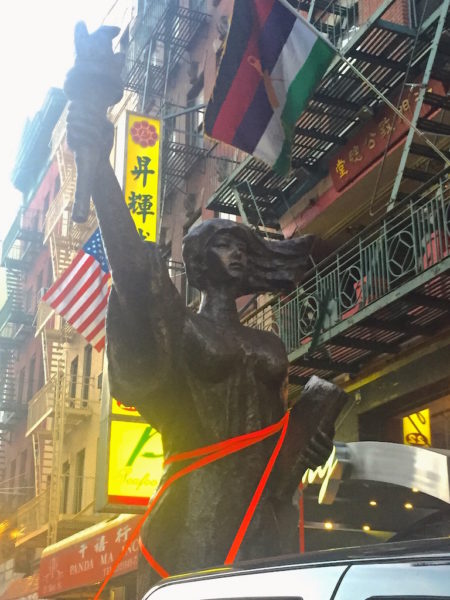
by Bill Weinberg, The Villager
The "Goddess of Democracy" became a global icon when she was raised by student protesters in Beijing's Tiananmen Square in 1989—before the movement was put down in the massacre of June 4. In the prelude to this year's anniversary of the massacre, the Democracy Goddess came to Manhattan's Chinatown. While the original raised in Beijing 27 years ago was of papier-maché and stood some 30 feet, this one was of fiberglass and about 10 feet high. It was raised in Confucius Plaza on May 30, right in front of the statue of the revered philosopher, at the corner of Bowery and Division.
Owing much to New York’s Statue of Liberty but also to the French Marianne, the Goddess stands holding a torch aloft. Across the statue's breast is a banner with the words "Freedom is not free."
Standing below are her creator, California-based artist Chen Weiming, and his small entourage. They have just arrived in the city following a cross-country tour with the Goddess.
WHY MINING CORPORATIONS LOVE TRADE DEALS
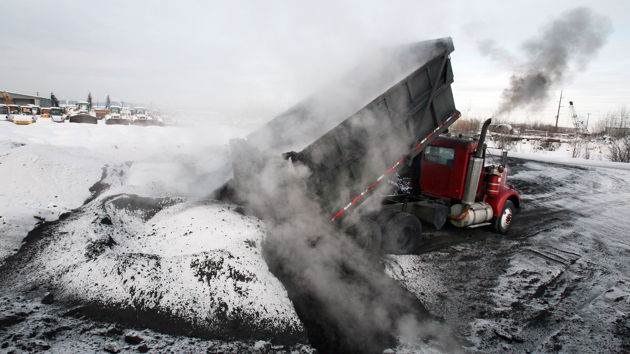
by Ben Beachy, Huffington Post
From the salmon-spawning waters of Alaska to the cloud forests of Ecuador, communities are standing up to mining projects that threaten their health, environment, and livelihoods.
But mining corporations are fighting back with a powerful tool buried in trade and investment agreements: the ability to go to private, unaccountable tribunals and sue governments that act to protect communities from mining.
In these private tribunals, which sit outside of any domestic legal system, corporate lawyers—not judges—decide whether governments must pay corporations for halting destructive mining projects. To date, mining corporations have used these private tribunals to sue over 40 governments more than 100 times.
In two-thirds of the concluded cases, governments either have been ordered to pay the mining corporations or have settled with them, which can require handing over payment and/or weakening mining restrictions. In the 44 publicly available mining cases still pending, mining corporations are demanding over $53 billion from governments.





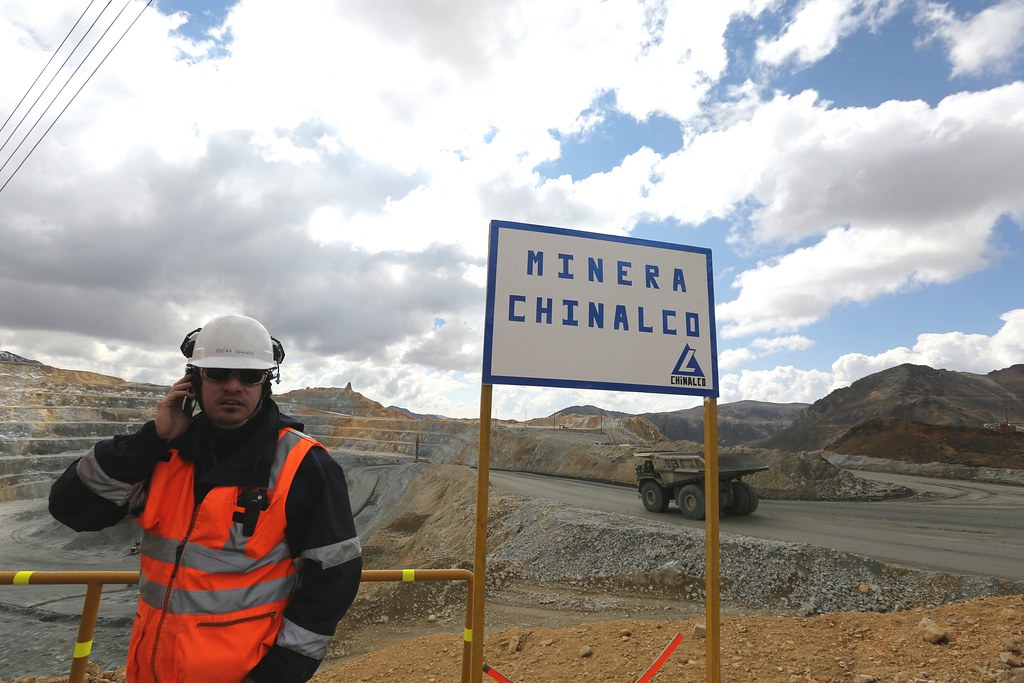
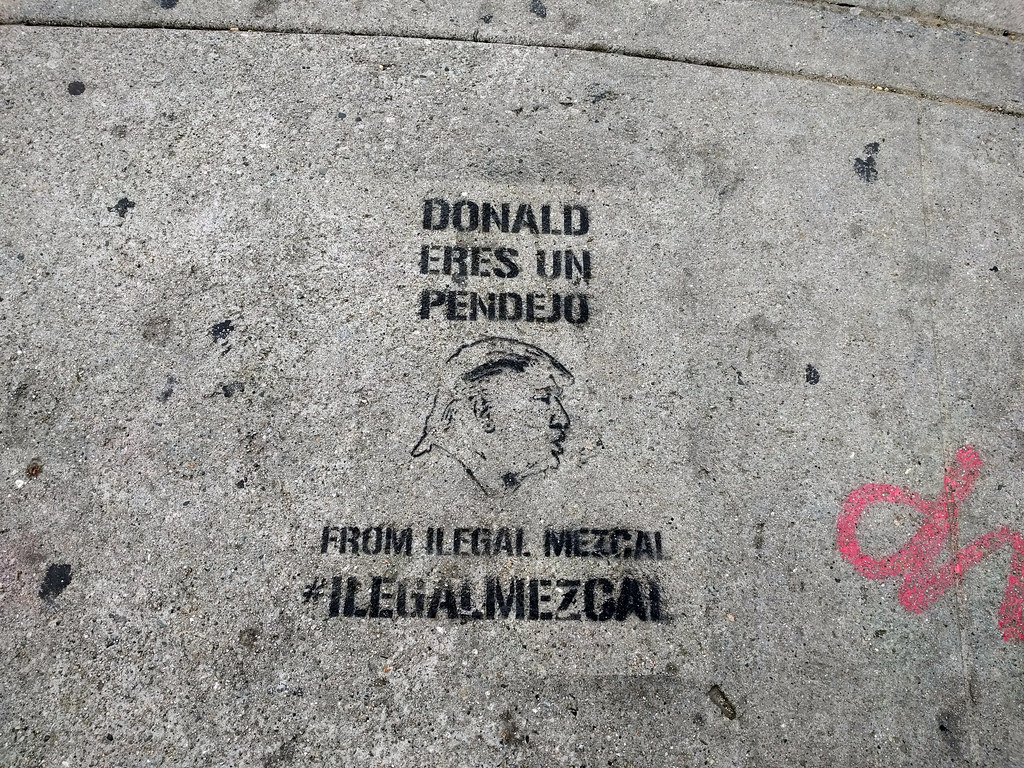










Recent Updates
7 hours 23 min ago
10 hours 40 min ago
1 day 5 hours ago
1 day 5 hours ago
2 days 14 hours ago
2 days 15 hours ago
4 days 15 hours ago
5 days 4 hours ago
5 days 5 hours ago
5 days 6 hours ago